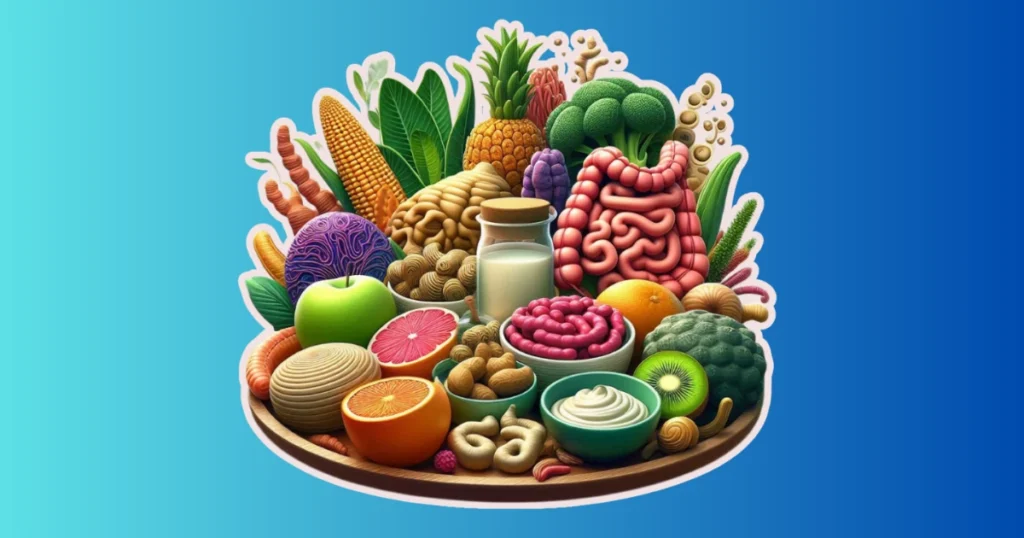
The consumption of prebiotics enables gut bacteria to generate vital nutrients for colon cells, contributing to an improved digestive system. Notable among these nutrients are short-chain fatty acids, including butyrate, acetate, and propionate, which can enter the bloodstream and support metabolic health.
It is crucial to differentiate prebiotics from probiotics, which consist of live bacteria found in certain foods or supplements.
10 Best Prebiotic Foods
Continue reading to discover 10 nutritious prebiotic foods that you should consider including in your grocery shopping list.
1. Garlic
Garlic is a pungent herb recognized for its potential health benefits. It serves as a prebiotic, encouraging the development of beneficial Bifidobacteria in the digestive system and helping to thwart the proliferation of pathogenic bacteria.
2. Chicory root
Chicory root serves as an excellent source of prebiotics. Approximately 68% of its fiber content consists of inulin, a prebiotic substance that aids in digestion, supports bowel health, and helps to relieve constipation.
3. Oats
Whole oats are beneficial grains known for their prebiotic properties. Like barley, they are a source of beta-glucan fiber and resistant starch. Additionally, oats are rich in a variety of phytochemicals that serve as prebiotics.
Research indicates that, in addition to their prebiotic effects and their favorable influence on gut bacteria, whole oats may provide other health benefits, such as aiding in the reduction of cholesterol.
4. Konjac root
Konjac root, commonly referred to as elephant yam, is a type of tuber similar to the potato that develops beneath the soil. The flour obtained from this tuber is rich in glucomannan fiber, comprising 70% to 90% of its content.
This highly viscous dietary fiber functions as a prebiotic, encourages the development of healthy gut bacteria, and links to various additional health benefits.
5. Cocoa
Cocoa beans, derived from the Theobroma cacao tree, serve as the primary ingredient in chocolate production. The use of cocoa powder simplifies the process of incorporating cocoa into an array of dishes, including oatmeal, smoothies, yogurt, and various other recipes.
Cocoa is a significant source of polyphenols, including flavanols, which provide antioxidant and anti-inflammatory effects. These compounds are instrumental in fostering the growth of beneficial gut bacteria while limiting the expansion of harmful bacterial strains.
6. Wheat bran
Wheat bran constitutes the outermost layer of the whole wheat grain and is rich in a unique form of fiber known as arabinoxylan oligosaccharides (AXOS).
Studies involving animals have indicated that AXOS fiber from wheat bran can promote the growth of healthy Bifidobacteria in the gut.
Furthermore, researchers have found that wheat bran elevates the levels of Bifidobacterium in fecal matter, contributing to the formation of softer stools in individuals with slower digestive processes.
7. Avocado
Similar to apples, avocados are rich in pectin, a substance known for its prebiotic characteristics.
Studies indicate that the regular consumption of avocados may contribute to a reduction in bile acid levels in feces, an increase in beneficial fatty acids and short-chain fatty acids, and an enhancement in the population of beneficial gut bacteria.
8. Flaxseeds
Flaxseeds represent a valuable source of prebiotics. The fiber content in flaxseeds enhances the proliferation of beneficial gut bacteria and promotes consistent bowel movements.
Moreover, they are a significant source of phenolic antioxidants.
9. Jicama root
Jicama root is characterized by its low caloric content and high fiber levels, particularly the prebiotic fiber known as inulin.
Previous studies conducted on animals have indicated that jacama root may contribute to improved digestive health, increased insulin sensitivity, and reduced blood sugar levels.
10. Seaweed
Seaweed, classified as a marine algae, is known for its high content of prebiotics and other health-promoting substances.
Laboratory research indicates that the polysaccharides present in seaweed can enhance the production of short-chain fatty acids (SCFA), which serve to nourish the cells that line the gastrointestinal tract.
Nevertheless, further human studies are required to fully understand the potential advantages of seaweed.
The bottom line
Prebiotic foods are rich in specific fibers that enhance digestive well-being. They facilitate the growth of beneficial gut bacteria, assist in alleviating various digestive issues, and contribute to the strengthening of the immune system.
Additionally, research indicates that prebiotic foods can enhance metabolic health and may aid in the prevention of certain illnesses.
To maximize the health benefits, it is advisable to consume these foods in their raw form, as cooking can alter their fiber content. With numerous options at your disposal, you have the opportunity to explore and identify the prebiotic foods that best suit your needs and promote gut health.


